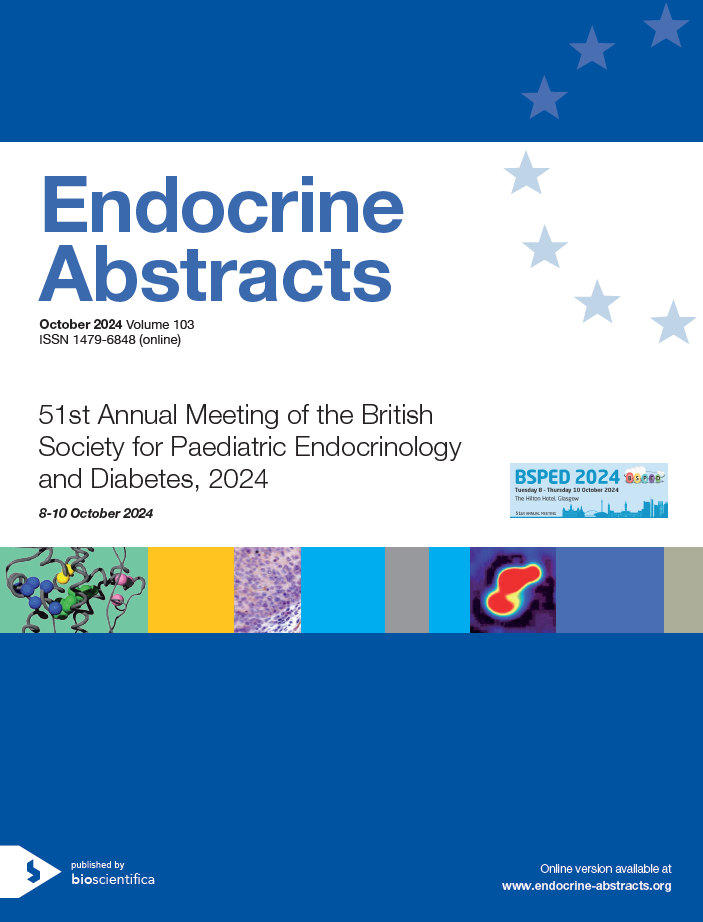
51st Annual Meeting of the British Society for Paediatric Endocrinology and Diabetes
Glasgow,
UK
08 Oct 2024 - 10 Oct 2024

Poster Presentations
Diabetes 2
ea0103p22 | Diabetes 2 | BSPED2024
HCL use does not cause increased insulin use or change in BMI z-score
O'Brien Rachael , Butterfield Lucy , Turner Louise , Henson Kate , Gray Natasha , Roberts Stephanie , Frerichs Carley , Riddle Miles
ea0103p23 | Diabetes 2 | BSPED2024
Case report of a patient with a biallelic variant in glucokinase (GCK) gene causing maturity onset diabetes of the young
ea0103p24 | Diabetes 2 | BSPED2024
Experience of a ‘non type 1/medically complex type 1’ patient clinic in a tertiary paediatric diabetes centre
ea0103p25 | Diabetes 2 | BSPED2024
Triple autoantibody negative patients in lanarkshire paediatric diabetes service
ea0103p26 | Diabetes 2 | BSPED2024
Atypical presentations of new onset diabetes – a possible cause of delayed diagnosis
Ponmani Caroline , Banerjee Kausik , Hulse Tony
ea0103p27 | Diabetes 2 | BSPED2024
New onset diabetes and diabetic ketoacidosis in children – a single centre study
Ponmani Caroline , Banerjee Kausik , Hulse Tony
ea0103p28 | Diabetes 2 | BSPED2024
How was your experience! diabetes transition survey
Usman Shehla , SidAhmed Mona , Devaraja Janani
ea0103p29 | Diabetes 2 | BSPED2024
A review of screening tools for disordered eating in type 1 diabetes to inform the development of children and young peoples diabetes (CYPD) network guidelines
Pigott Aisling , Button Charlotte , Wimbury James , Leonie McDonald , Rosie Anderson , Rosemary Shield , Stephanie Griffiths , Adele Swart , Freundlich Emma , Cramb Georgia , Chapman Simon



